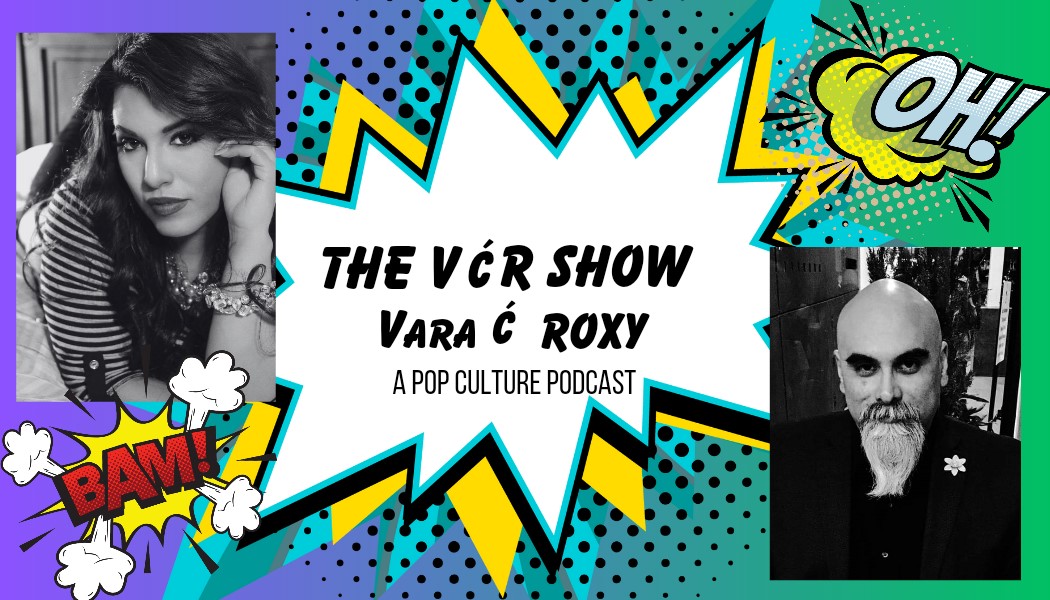By
Richard C. Vara
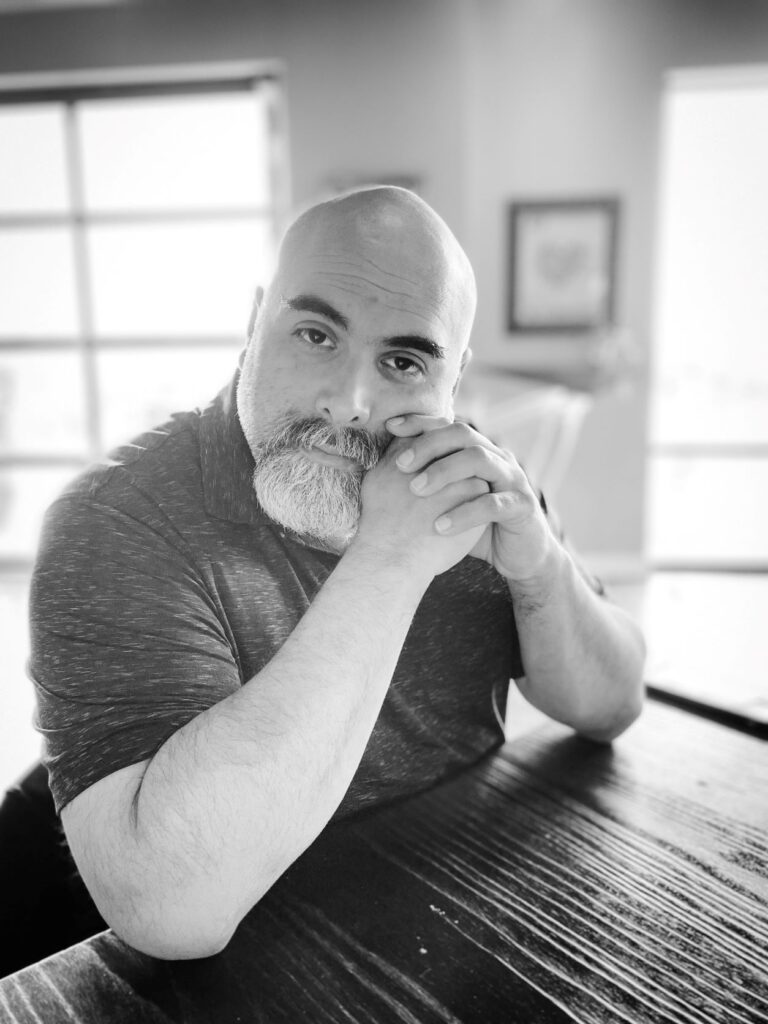
March 6, 2022
Journalists do a lot more than what we give them credit for. They bring us information that impacts our life and helps us to stay informed about current events. They also help to preserve history through the stories they write. It is often said that journalism is the first draft of history. They help us to form our thought and opinions that influence our life. Most of the time they are asking the questions that help to drive our need for information. Today the tables are turned in an interview with the first Hispanic journalist of the Houston Post and retired editor of the Houston Chronicle, Richard V. Vara.
Mr. Vara was born in Houston, Texas on March 15, 1947 to a working-class family. He credits his father Richard T. Vara for stressing the importance of education. Mr. Vara’s father worked as a cement mason and did other construction jobs to put him and his brother through Catholic school in order to receive a good education. Mr. Vara had discovered his interest in journalism in high school,
“When I was in high school, I started to figure out I had to do something. I started to get into what I did like. Things like reading, writing, I was terrible at mathematics. I was thinking it over and I decided I will go to the university and look into this thing called journalism. See if it was economically viable and see if I enjoyed it. Apparently, I did enjoy it. It became a career for me,” Vara recalled.
He then attended the University of Houston in the 1960s and graduated in 1964 with a Bachelor’s of Journalism. After graduation, he enlisted in the army before he was drafted into the Vietnam War. After the army, Mr. Vara came back to Houston and decided to pursue his career in journalism.
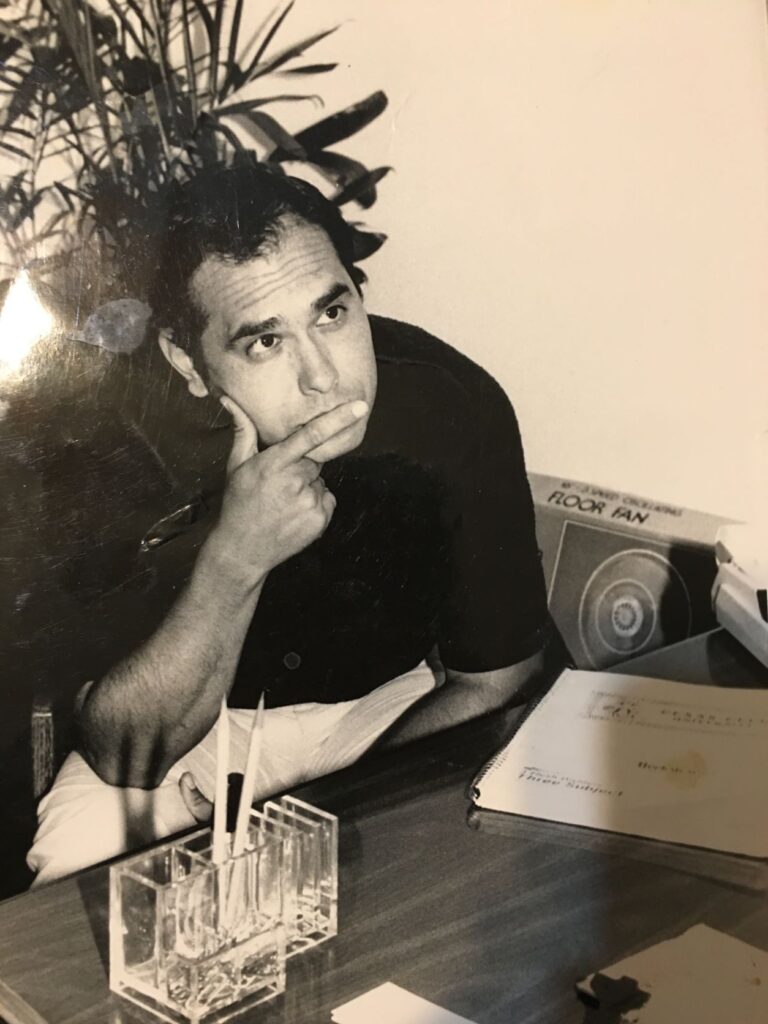
Photo courtesy of Richard V. Vara
“There were only two newspapers in Houston at the time. I decided to go ahead and apply at the Houston Chronicle and when I applied at the Chronicle the vibes were not good. The editor I interviewed with did not give me much hope that I was going to get the job. This was a period of hiring minorities, and there were not a lot of minorities who were in journalism. I just felt, maybe being Hispanic I could have an opportunity to go in and see if I could get a low-class little job, covering the water docks or Galena Park or something like that. In those days major newspapers, magazines, and TV stations required you to have a good solid background as a journalist, and I had no background or experience.
Then I applied at the Houston Post and the editor there Ed Hunter, who I will never forget, was very accommodating and he was very encouraging. I am sure he added pressure on the city desk. I was surprised when they told me they would hire me. I was told early on I was going to be a suburban reporter and I will learn my P’s and Q’s there and learn how to be a reporter.” Mr. Vara fondly recalls.
Mr. Vara was the first Hispanic journalist to be hired at the Houston Post in the 1970s. After developing his skills as a suburban writer and covering death row in Huntsville, Texas, he was then approached by the Post to create a column that would cover what was happening in the Hispanic communities. He called the column “Espejo.” Espejo translates to mirror in English,
“It just came to me, and I thought it would be a good name. It reflected who we are,” Vara said.
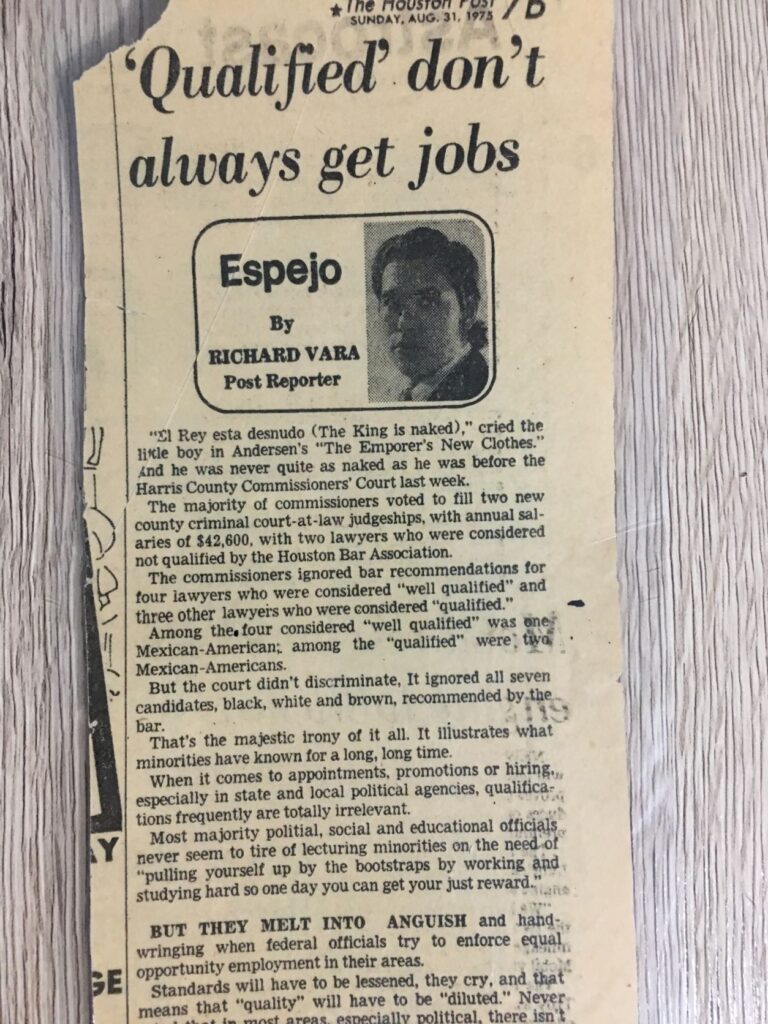
Photo by: Richard C. Vara
The column was a product of its time. With events such as the passage of the 1965 Voting Rights Act and the Brown Movement, Hispanics were receiving a lot more attention. Especially with the murder of Jose Compos Torres who was savagely beaten to death by four Houston Police officers and then dumped in Buffalo Bayou in 1977. Mr. Vara wrote about the events that affected the vastly growing Hispanic community on the local, state, and national levels for several years until interest eventually died out. He also covered many other major stories in his career such as the ever-famous Candy Man murder in Pasadena, Texas along with the Dean Corll Houston Mass Murders in the 1970s. He was sent to Mexico to cover the Mark Kilroy murders and was sent to Rome to cover the passing and funeral of Pope John Paul II, now Saint John Paul II. Although, this was not his first time covering the famous Pontiff. He also covered His Holiness’s visit to San Antonio, Texas in 1987. This was the first and only time a Pope had visited Texas.
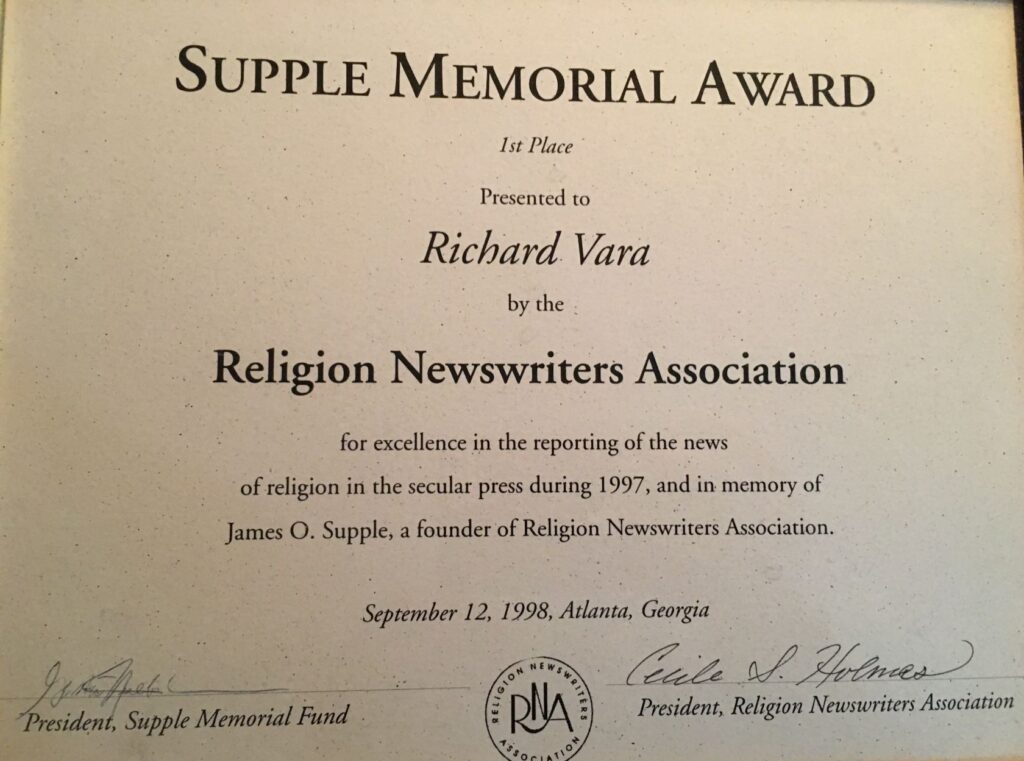
Photo by: Richard C. Vara
Mr. Vara went on to cover religion for the Houston Post until he left the Post for a position at the Houston Chronicle in the early 1990s. One year later, the Houston Post was sold off and closed its doors permanently, making the Houston Chronicle the only newspaper in the city of Houston.
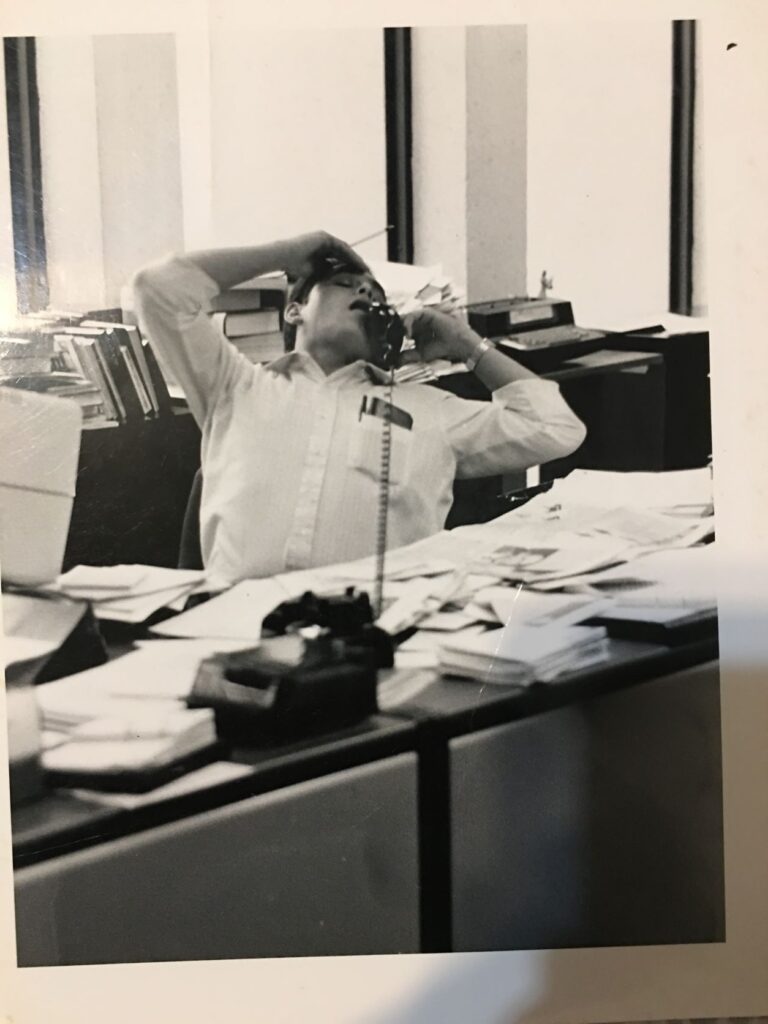
Photo courtesy of Richard V. Vara
In looking back at some of his past stories, Mr. Vara recalls the events of the Mark Kilroy murders and what it was like to be a journalist.
“This is an experience, and this is something, I think a lot of people don’t realize about reporting, a lot of times you’re in an environment or at a place where you may not know what is happening, what’s going on, and you have to start from scratch and get all the information and work up the interviews. I went so far as I looked for Kilroy and found out where his body was. He was in Mexico; he was at a morgue. It was loosely a morgue with no air conditioning. You walk in, and it was obvious what it was by the smell. You kind of knew what the situation was when you walked in. This guy was working at the morgue, and he asked what I was doing. I told him, he said, well come here and then we walked over, and he unzipped a bag. It was the body of Kilroy. I had a camera, I said ‘I don’t think the people at the Post want a picture of Kilroy.’ (In that state.) Kilroy had been beheaded as part of the murder. When I was back at the Post, I told the photographers ‘You know I had a chance to take a picture of his body.’ They all asked ‘Well, why didn’t you?’ I looked at them, and I said ‘because you know we would never use it.’ The photographers said ‘yeah, but they would use it in Europe.’ I was shocked, but those are the types of things that you learn.
Never be frightened to do something that, may not be in accordance with our point of view. It was a little discomforting but nonetheless, it’s one of the things that we learn. In the first few months that you’re working, you have to work under pressure, no matter what. You have to learn how to write the stories as fast as you can and sometimes get up to the desk as early as possible so they can edit, and they may call you back for more answers to more questions, and it’s a very difficult lifestyle because you really, really have to answer those questions as clearly as you can and sometimes you can’t. So, then you go looking for them (answers) and they’re not there, the people are not there, so you have to ride around. Find the answers,” Vara said.
On his 60th birthday, Mr. Vara suffered a massive stroke that was caused by atrial fibrillation. He was rushed to Memorial Herman Hospital. It was a month before he could leave the hospital and start his recovery. With everything that was happening, Mr. Vara desperately wanted to return to work.
“Obviously, I knew things were more difficult for me after my hospitalization for the atrial fibrillation,” Vara said.
Most people encouraged Mr. Vara to retire and enjoy his life as a father and grandfather. He remembers how his family and friends would tell him it was time to retire. However, Mr. Vara would not have it and returned to the Houston Chronicle to try and resume his duties as editor. Things were not the same for Mr. Vara upon his return. There were some struggles and issues with adapting to the work environment after suffering a massive stroke. Mr. Vara was then sent to see a psychiatrist in order to determine if he could continue working in his capacity.
“I had to go talk to a psychiatrist, I went in and talked to him. The psychiatrist asked, ‘What do you intend to do?’ I told him ‘I want to try and get back to work.’ He looked at me and said, ‘Why? Why do you want to keep working?’” Vara recalled.
The psychiatrist then informed Mr. Vara that he was going to write a letter that Richard could take back to the Chronicle that would allow him to retire.
“I was very disappointed because I really wanted to go back to work,” Vara sadly said.
A few organizations have approached Mr. Vara about preserving his works and memories of being the first Hispanic journalist at the Houston Post along with his influence in the Hispanic community. Most of his works from the Houston Post can still be found in the archives of the Houston Public Library.
Richard Vara now enjoys the retired life and still keeps in contact with his friends at the Chronicle and some he worked with at the Post. He keeps himself busy with doing yard work and reading a good book from time to time and going to family and social events. He also enjoys spending time with his grandchildren and helping at ST. Patrick Catholic Church.
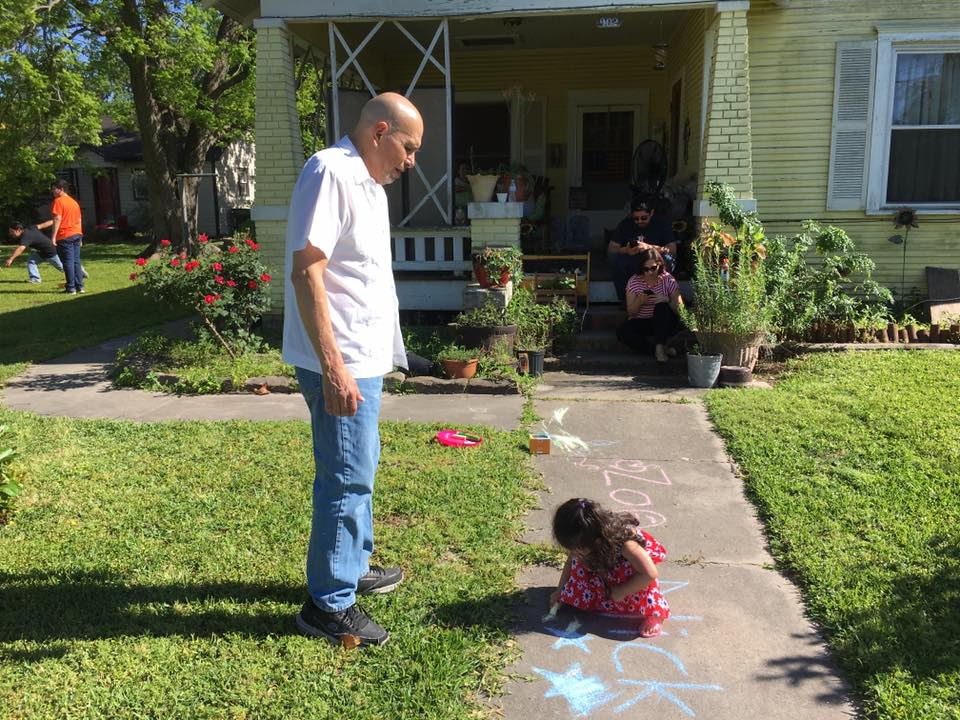
Photo by: Richard C. Vara
He may not be as spry as he was back in the 1970s or when he was traveling to cover major news events such as high-profile killers or visits from the Pope. However, he is still just as influential as the day he became the first Mexican-American journalist to write for the Houston Post.
